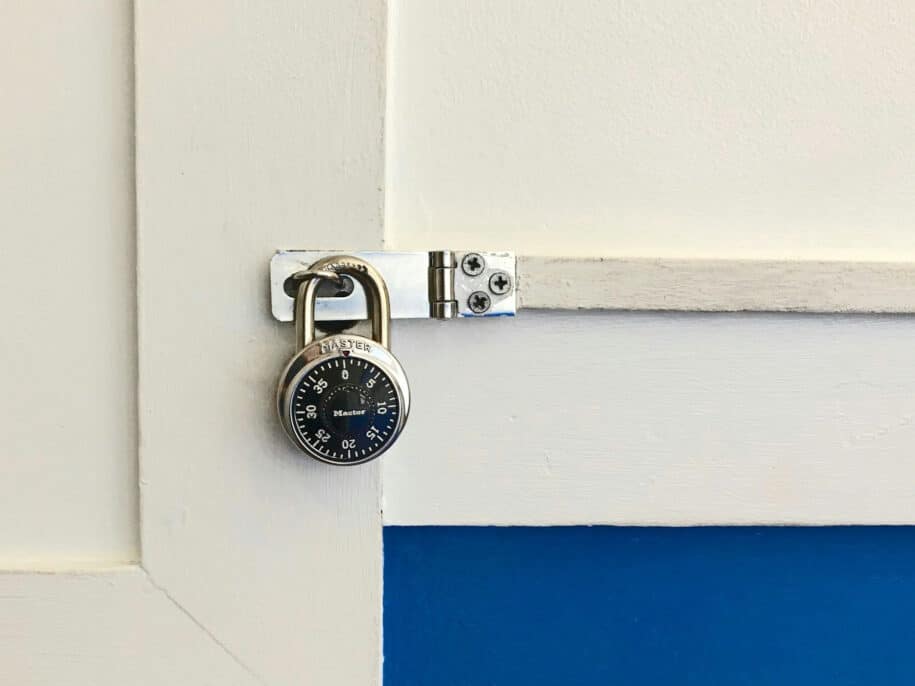A credit card lock can be a useful action to take when you don’t want your card used. I’ll lay out all the details here.
I’ve always said that the best place for your credit card is in your desk drawer, not in your wallet. I say this because I believe that one important component of financial wellness is paying with money, not a promise to pay with money later. I’ve gone into this in detail before.
But I have credit cards, and I assume you do too. So did you know that you can keep a credit card…but keep it locked?
In this post, I’ll go into all the reasons why you might want to lock your credit card, and what to watch out for as well, including link to how to actually do it.
By the end, you’ll have this topic on lock. (Sorry.)
Table of Contents
What does it mean to lock a credit card?
Locking a credit card is the act of signifying that you do not wish to allow new charges to be placed on your credit card.
It’s not unlike a “credit freeze”, wherein you state to the credit bureaus that you don’t wish to allow any new credit products to be taken out in your name. But this is limited to a specific card that you already have, not your entire profile.
Locking a credit card doesn’t close it, but instead just (sort of, as we’ll see below) puts it on ice.
In general, locking and unlocking is free to do.
Why would you lock a credit card?
There are a number of reason why you might want to lock a card as opposed to, say, cancelling it.
- Your card is lost or stolen. If you can’t find your card, or fear that it’s been stolen, you might want to lock your card to prevent anyone else from using it. Even though you aren’t generally liable for any charges from unauthorized activity, it still could simplify your situation until you find the card or get a replacement.
- Allows you time to pay down your balance. You can’t get out of a hole by digging, and you can’t pay off your credit card if you’re still putting new charges on it. So putting a lock on the card forces you to not put any new charges on the card, enabling you to pay off your balance more easily.
- Forces accountability. Even if you don’t have a balance, a credit card lock can act as a kind of accountability, to prevent you from using your card. This can be good if you find yourself prone to temptation.
Does locking a credit card prevent all charges?
One thing to watch out for is that locking a credit card doesn’t necessarily stop all the charges on your account. It will only stop new, one-time charges from hitting your account. If you have set up recurring charges, like from a subscription, cards generally will continue to allow recurring charges through. This is because the charges were pre-authorized.
Because of this, if you want to be totally sure that no new charges are going to be issued with your credit card, make sure to cancel or switch any recurring charges off of that card. And even then, you still want to monitor your account balance periodically to make sure that nothing has slipped by. Anecdotal reports state that this locking isn’t foolproof.
How do you lock a credit card?
Each credit card issuer has slightly different language on how to lock and unlock a card.
But here are some details for the large issuers to help you get started:
Bottom Line
If you want to keep your credit card account open, but don’t want to use it for new charges, you can contact your credit card company and lock your credit card. It’s free and can help you in a number of situations, from a lost or stolen card to keeping you accountable.



